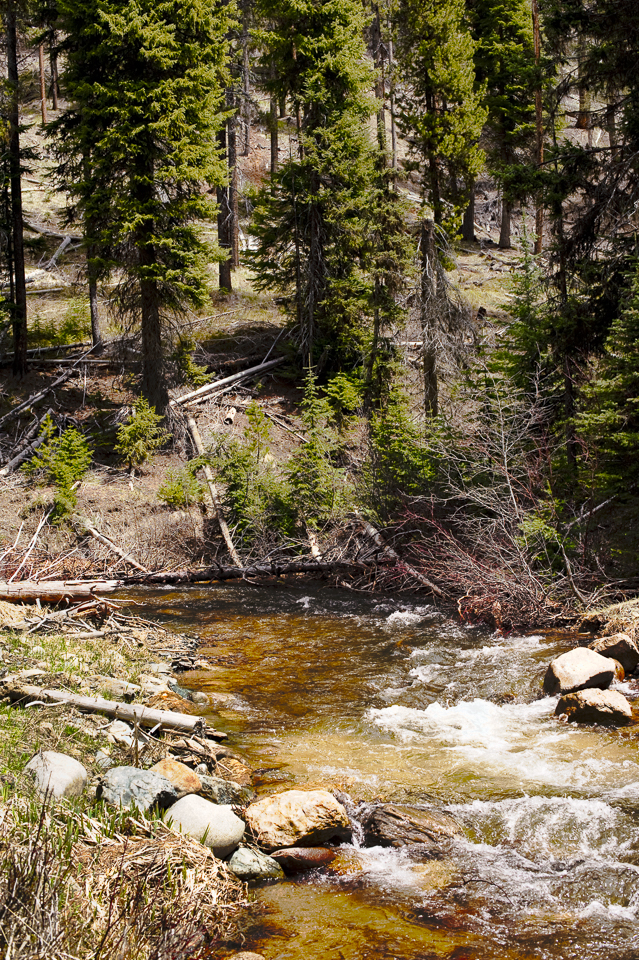Gold drew settlers to eastern Oregon in large numbers in the late 1800s. In the Blue Mountains west of Baker City mining towns sprang up in Granite, Whitney, and Sumpter following the discovery of gold in the area in 1862. Charles Liebenstein, editor of the Blue Mountain American , used his paper to promote the local economy by advertising the available wealth - timber as well as gold. The following bit of boosterism is typical of Liebenstein's editorial point of view: expert opinion, hyperbole, and and a push for a rail connection.
 Noted Expert Here
Noted Expert Here
 H.L Hollie, a noted mining expert and metallurgist, of New York City, and representing the wealthy Batchelder syndicate and Pennsylvania capitalists, was in Sumpter yesterday, en route home, after a ten weeks' visit in this section. Upon being pressed for an interview, by the American representative, Mr. Hollie said:
H.L Hollie, a noted mining expert and metallurgist, of New York City, and representing the wealthy Batchelder syndicate and Pennsylvania capitalists, was in Sumpter yesterday, en route home, after a ten weeks' visit in this section. Upon being pressed for an interview, by the American representative, Mr. Hollie said:
"I would prefer to leave Sumpter without being interviewed, but as that seems impossible, I will state that during the past 17 years I have visited nearly every mining camp, of any importance, in the United States and have also visited Mexico, Alaska, and South Africa. With no camp have I been more favorably impressed than with this. During my stay here I have thoroughly investigated the Cracker creek and Bonanza districts; the results of my examinations would satisfy the most critical mining expert living. The entire Sumpter gold fields can be classed as an immense low grade proposition, not that some wonderfully rich ore is not to be found, that will be milled, will assay from $12 to $15. The ore bodies of the district are of wonderful extent and I am satisfied that they have permanency. While I do not advance the theories that values will increase with depth, I think deep mining the only method, and I believe, when once adopted in this district, it will prove the entire section to be one of the biggest milling propositions in the world."
"For a district known such a short time, it is very far advanced and has a number of producing mines."
"It is blessed with two natural advantages, that will prove of vast benefit in the future, an abundant supply of timber and water. Nearly every place in the district is of easy access. I cannot see what is to prevent it from pushing rapidly to the front and in a short time become the banner producer of gold...."
"I am very favorably impressed with Sumpter, but to be candid with you, I do not think the town will attain the prominence, nor have the trade due it, on account of its commanding position, until it is connected with the tributary mining districts, by a system of electric railways."
Charles Liebenstein, "Noted Expert Here," , The Blue Mountain American, November 17, 1900.